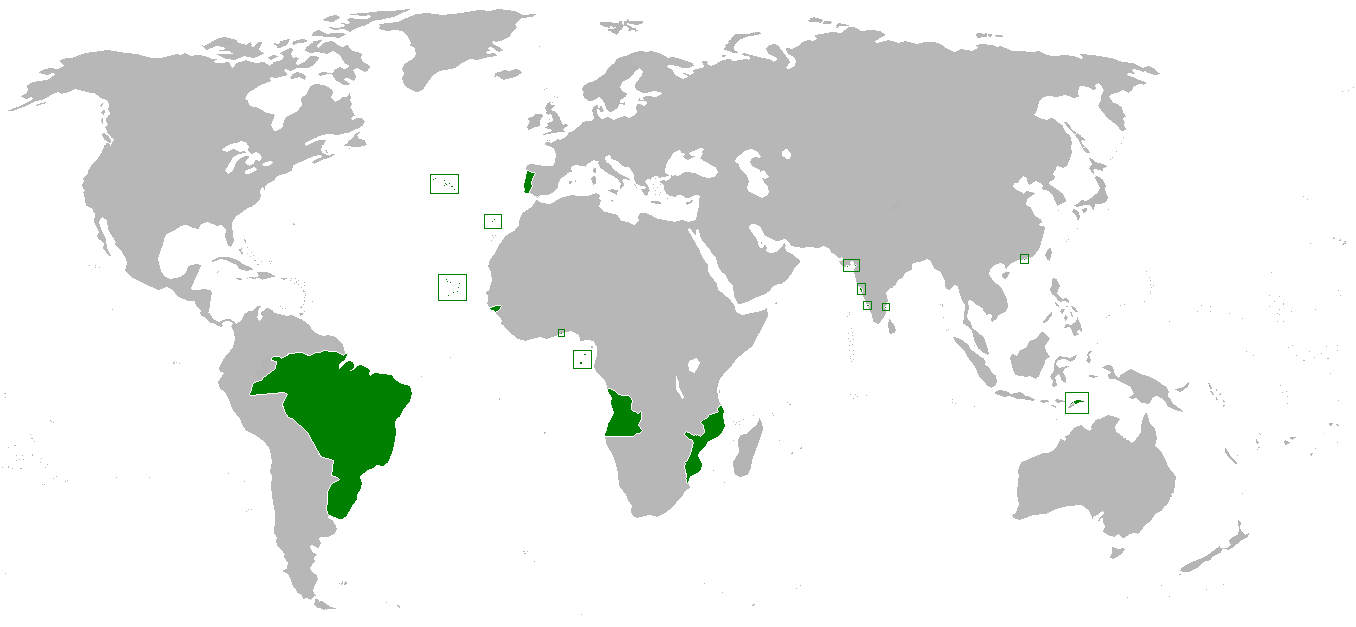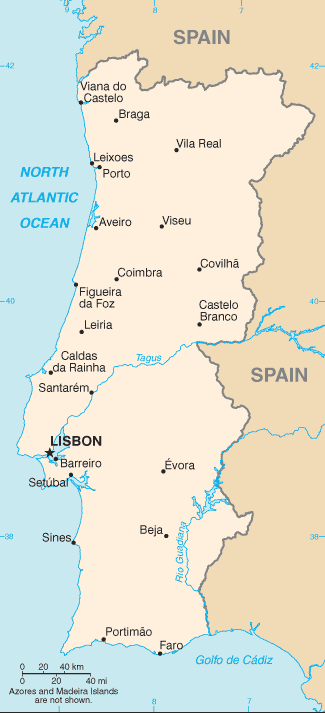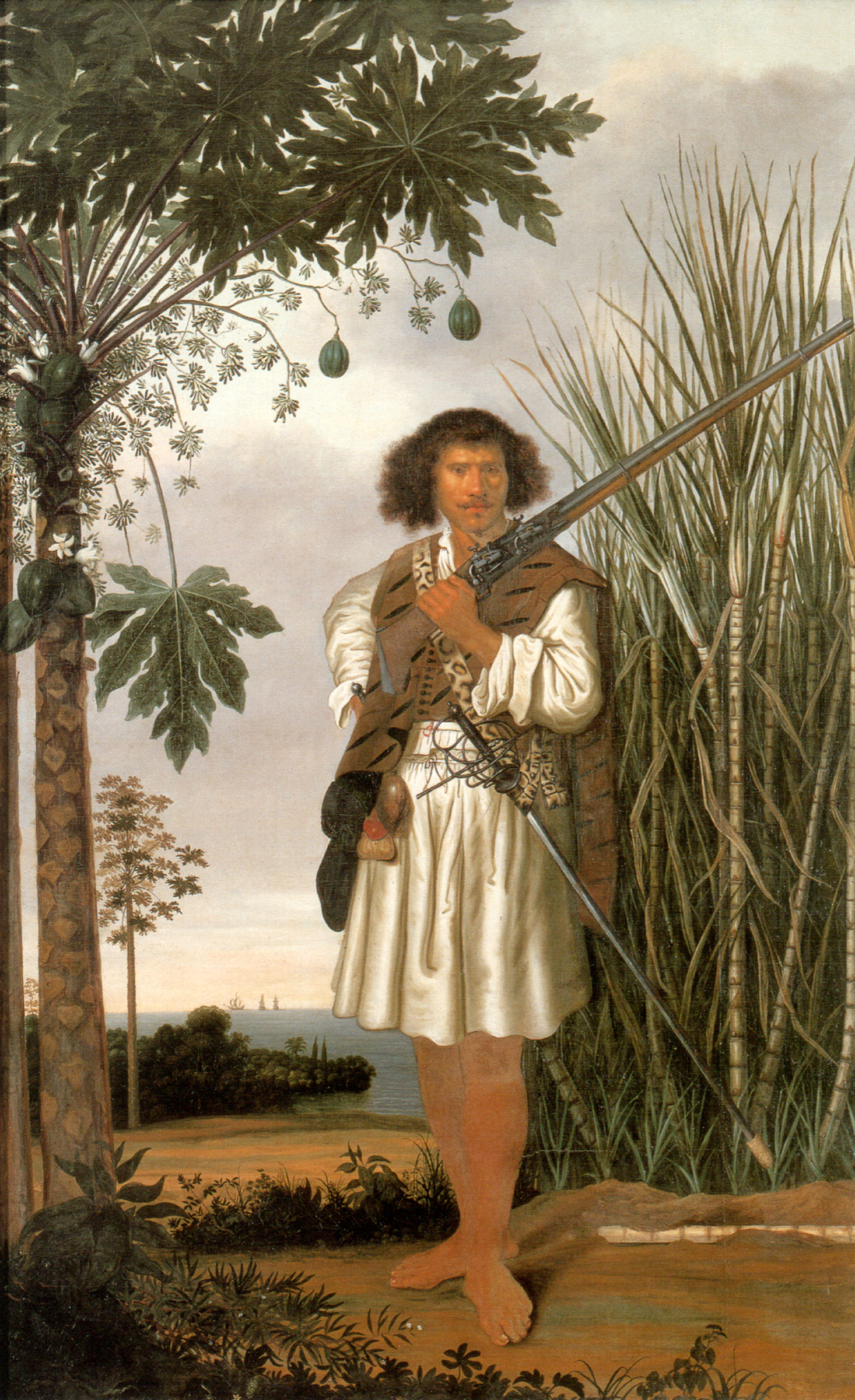|
Pluricontinentalism
Pluricontinentalism ( pt, Pluricontinentalismo) was a geopolitical concept, positing that Portugal was a transcontinental country and a unitary nation-state consisting of continental Portugal and its overseas provinces. With origins as early as the 14th century, pluricontinentalism gained official state sponsorship in the Estado Novo regime. It was the idea that Portugal was not a colonial empire (Portuguese Empire) but a singular nation-state spread across continents (hence the name). As such, overseas possessions were a part of Portuguese identity. The first time that Portugal was a pluricontinental country was during the reign of Maria I of Portugal, with the creation of the United Kingdom of Portugal, Brazil and the Algarves, when the Portuguese court was living in Brazil and Rio de Janeiro served as the capital for the country. The idea of pluricontinentalism quickly collapsed following the Carnation Revolution in 1974. People associated with pluricontinentalism *Antó ... [...More Info...] [...Related Items...] OR: [Wikipedia] [Google] [Baidu] |
Overseas Province
Overseas province ( pt, província ultramarina) was a designation used by Portugal for its overseas possessions, located outside Europe. History In the early the 19th century, Portuguese overseas territories were referred to as "overseas dominions", but administrative reforms made the term "overseas provinces" begin to be used. That was in keeping with the idea of pluricontinentalism, or the idea that Portugal existed as a transcontinental country and that its territories were integral to the Portuguese state. Overseas possessions had already been seen as an element of Portuguese identity. Although administratively classified as an overseas province, Portugal's possessions in India retained the honorary title of "state". By the 20th century, most of these territories were referred to as "colonies", but the term "overseas province" continued to be the official designation. The Portuguese Colonial Act - passed on 13 June 1933 as one of the fundamental statutes of the Estado Novo ... [...More Info...] [...Related Items...] OR: [Wikipedia] [Google] [Baidu] |
Continental Portugal
Continental Portugal ( pt, Portugal continental, ) or mainland Portugal comprises the bulk of the Portuguese Republic, namely that part on the Iberian Peninsula and so in Continental Europe, having approximately 95% of the total population and 96.6% of the country's land. Mainland Portugal is therefore commonly called by residents of the Portuguese archipelagos of the Azores and Madeira the continent ( pt, o continente) in all respects including minor elements of combined governance from Lisbon, the country's capital. Before 1975, when the Portuguese territory also stretched to several now-independent states in Africa, the designation ''metropolis'' ( pt, metrópole) was also used. Context The designation ''mainland Portugal'' is used to differentiate the continental territory of Portugal from its insular territory. The latter comprises the archipelagos of Madeira and Azores in the Atlantic Ocean. The Azores and Madeira are also commonly referred to as the autonomous region ... [...More Info...] [...Related Items...] OR: [Wikipedia] [Google] [Baidu] |
Lançados
The ''lançados'' (literally, ''the thrown out ones'' Pardue 2015: p. 42 or ''the cast out ones'') were settlers and adventurers of Portuguese origin in Senegambia, Cabo Verde, Guinea, Sierra Leone, and other areas on the coast of West Africa. Many were Jews—often New Christians—escaping persecution from the Portuguese Inquisition. ''Lançados'' often took African wives from local ruling families, securing protection and advantageous trading ties. They established clandestine trading networks in weaponry, spices, and slaves. This black market angered the Portuguese Crown by disrupting its ability to collect taxes. Although never large in numbers, mixed-race children born to the ''lançados'' and their African wives and concubines served as crucial intermediaries between Europeans and native Africans. These mixed-race people wielded significant power in the early development of port economies in Bissau, Cacheu, and surrounding areas. The ''lançados'' originated the Portugues ... [...More Info...] [...Related Items...] OR: [Wikipedia] [Google] [Baidu] |
Assimilados
Assimilado is the term given to African subjects of the colonizing Portuguese Empire from the 1910s to the 1960s, who had reached a level of "civilization", according to Portuguese legal standards, that theoretically qualified them for full rights as Portuguese citizens. Portuguese colonizers claimed as the goal for their assimilation practices, the "close union of races of different degrees of civilization that help and support each other loyally"; however, this notion of a "close union" differed from its practical application in the cultural and social spheres of the colonies of Portuguese Angola, Portuguese Mozambique and Portuguese Guinea.Heywood, Linda (2000). ''Contested Power in Angola, 1840s to the Present'', pp. 92-93. Rochester: University of Rochester Press. . Formation in Portuguese lawmaking Assimilation ideals begin Portugal, along with France, was one of the only Africa colonizers which introduced the idea of assimilation of the colonized people into the popula ... [...More Info...] [...Related Items...] OR: [Wikipedia] [Google] [Baidu] |
Lusotropicalism
Lusotropicalism ( pt, Lusotropicalismo) is a term and "quasi-theory" developed by Brazilian sociologist Gilberto Freyre to describe the distinctive character of Portuguese imperialism overseas, proposing that the Portuguese were better colonizers than other European nations.Miguel Vale de AlmeidaPortugal’s Colonial Complex: From Colonial Lusotropicalism to Postcolonial Lusophony/ref> Freyre theorized that because of Portugal's warmer climate, and having been inhabited by Celts, Romans, Visigoths, Moors and several other peoples in pre-modern times, the Portuguese were more humane, friendly, and adaptable to other climates and cultures. He saw "Portuguese-based cultures as cultures of ecumenical expansion" and suggested that "Lusotropical culture was a form of resistance against both the 'barbaric' Soviet communist influence, and the also 'barbarian' process of Americanization and capitalist expansion." In addition, by the early 20th century, Portugal was by far the Europea ... [...More Info...] [...Related Items...] OR: [Wikipedia] [Google] [Baidu] |
Portuguese Empire 1800
Portuguese may refer to: * anything of, from, or related to the country and nation of Portugal ** Portuguese cuisine, traditional foods ** Portuguese language, a Romance language *** Portuguese dialects, variants of the Portuguese language ** Portuguese man o' war, a dangerous marine cnidarian that resembles an 18th-century armed sailing ship ** Portuguese people, an ethnic group See also * * ''Sonnets from the Portuguese'' * "A Portuguesa", the national anthem of Portugal * Lusofonia * Lusitania Lusitania (; ) was an ancient Iberian Roman province located where modern Portugal (south of the Douro river) and a portion of western Spain (the present Extremadura and the province of Salamanca) lie. It was named after the Lusitani or Lu ... * {{disambiguation Language and nationality disambiguation pages ... [...More Info...] [...Related Items...] OR: [Wikipedia] [Google] [Baidu] |
António De Oliveira Salazar
António de Oliveira Salazar (, , ; 28 April 1889 – 27 July 1970) was a Portuguese dictator who served as President of the Council of Ministers from 1932 to 1968. Having come to power under the ("National Dictatorship"), he reframed the regime as the ("New State"), a corporatist dictatorship that ruled Portugal from 1933 until 1974. Salazar was a political economy professor at University of Coimbra. Salazar entered public life as finance minister with the support of President Óscar Carmona after the 28 May 1926 coup d'état. The military of 1926 saw themselves as the guardians of the nation in the wake of the instability and perceived failure of the First Republic, but they had no clue how to address the critical challenges of the hour. Within one year, armed with special powers, Salazar balanced the budget and stabilized Portugal's currency. Salazar produced the first of many budgetary surpluses. He promoted civilian administration in the authoritarian regime when the p ... [...More Info...] [...Related Items...] OR: [Wikipedia] [Google] [Baidu] |
History Of The Atlantic Ocean
History (derived ) is the systematic study and the documentation of the human activity. The time period of event before the invention of writing systems is considered prehistory. "History" is an umbrella term comprising past events as well as the memory, discovery, collection, organization, presentation, and interpretation of these events. Historians seek knowledge of the past using historical sources such as written documents, oral accounts, art and material artifacts, and ecological markers. History is not complete and still has debatable mysteries. History is also an academic discipline which uses narrative to describe, examine, question, and analyze past events, and investigate their patterns of cause and effect. Historians often debate which narrative best explains an event, as well as the significance of different causes and effects. Historians also debate the nature of history as an end in itself, as well as its usefulness to give perspective on the problems of the p ... [...More Info...] [...Related Items...] OR: [Wikipedia] [Google] [Baidu] |
Imperialism
Imperialism is the state policy, practice, or advocacy of extending power and dominion, especially by direct territorial acquisition or by gaining political and economic control of other areas, often through employing hard power (economic power, economic and Military, military power), but also soft power (cultural imperialism, cultural and Diplomacy, diplomatic power). While related to the concepts of colonialism and empire, imperialism is a distinct concept that can apply to other forms of expansion and many forms of government. Etymology and usage The word ''imperialism'' originated from the Latin word ''imperium'', which means supreme power, "sovereignty", or simply "rule". It first became common in the current sense in Great Britain during the 1870s, when it was used with a negative connotation. Hannah Arendt and Joseph Schumpeter defined imperialism as expansion for the sake of expansion. Previously, the term had been used to describe what was perceived as Napoleon II ... [...More Info...] [...Related Items...] OR: [Wikipedia] [Google] [Baidu] |
Órfãs Do Rei
The Órfãs do Rei (, ''orphans of the king'') were Portuguese girl orphans who were sent from Portugal to overseas colonies during the Portuguese Empire as part of Portugal's colonization efforts. The orphans were married to native rulers or Portuguese settlers. Purpose and practicalities Orfãs do Rei translates to "Orphans of the King", and they were all girls. Their fathers were Portuguese men who died in battle for the king. They were sent to the colonies of the Portuguese Empire. The Asian colonies contained more Portuguese females than was previously thought. Bernard Sta Maria wrote that "From 1545, King John III began to send to India (and the Far East) with all pomp and distinction many young Portuguese women known as 'Orphans of the Queen' to be married with local young men." Both noble and non-noble girls were in the ''órfãs do rei''. Since these girls were specifically designated as the "King's", the Portuguese government paid for their care and upbringing before and ... [...More Info...] [...Related Items...] OR: [Wikipedia] [Google] [Baidu] |
Mestiço
Mestiço is a Portuguese term that referred to persons born from a couple in which one was an aboriginal person and the other a European. Mestiço community in Brazil in Colonial Brazil, it was initially used to refer to , persons born from a couple in which one was an Indigenous American and the other a European. It literally translates as " mameluke", probably referring to the common Iberian comparisons of swarthy people to North Africans (cf. , "tawny, swarthy, tanned" but also "dark colored" or "dark-haired human", from , " Moor"). The term fell in disuse in Brazil and was replaced by the much more familiar-sounding (formerly , from Tupi ''ka'abok'', "the ones coming from the wilderness") or (from ''kari'boka'', "what comes from the white man"; could also mean the child of a and a white person, equivalent to the Spanish , or to the child of a and an Indigenous person, equivalent to the Spanish ), given the fact that most Brazilians, even those living in ubiquitou ... [...More Info...] [...Related Items...] OR: [Wikipedia] [Google] [Baidu] |


.jpg)

.jpg)

